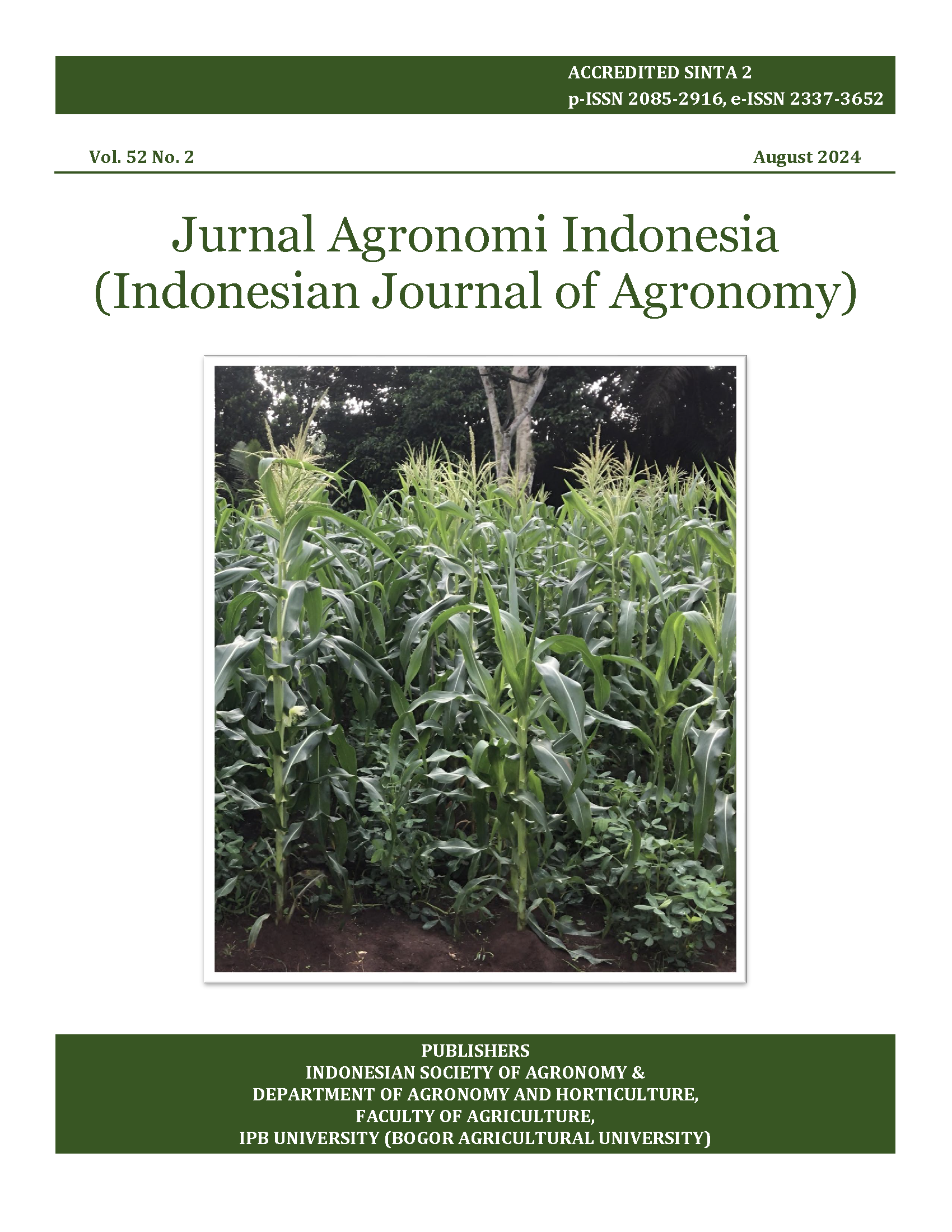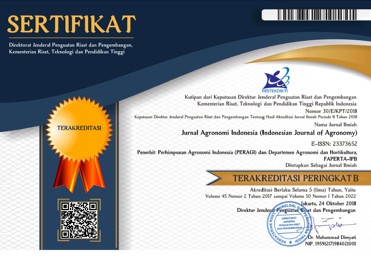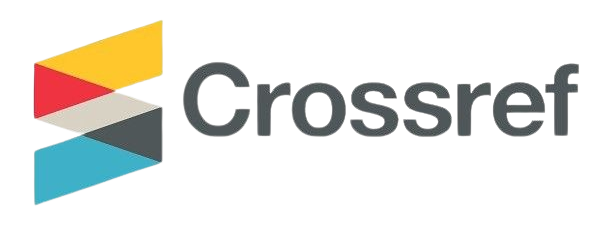Growth and water-needs analysis of sweet corn and peanuts in different cropping systems
Abstract
Maize and peanuts are important food crops in Indonesia and are generally planted in monoculture and intercropping systems. The water required for monoculture and intercropping is believed to be different. However, comparison analysis of water requirements in monoculture and intercropping is rarely conducted. The research aimed to evaluate the growth and production of sweet corn and peanuts in monoculture and intercropping systems concerning water requirement and crop coefficient. The study was conducted at IPB Experimental Station in Leuwikopo, Bogor, Indonesia from September to December 2022. Sweet corn and peanuts were planted in different cropping systems, i.e., monoculture and intercropping. Water consumption of both cropping systems was evaluated in every growing stage. The experiment used a completely randomized block design and was repeated three times. Results showed that sweet corn growth was not significantly different among cropping systems, but yield from intercropping was lower than monoculture. Intercropped peanuts grew lower than monoculture but did not show any significant difference in yield among cropping systems. Water use efficiency in intercropping was higher than monoculture for both crops, indicating intercropping is a suitable cropping system for limiting soil water availability. The land equivalency ratio was 1.80, concluding that intercropping was more efficient than monoculture in land use by 80%.
Keywords: climate change; crop coefficient; intercropping; land equivalent ratio; water use efficiency














